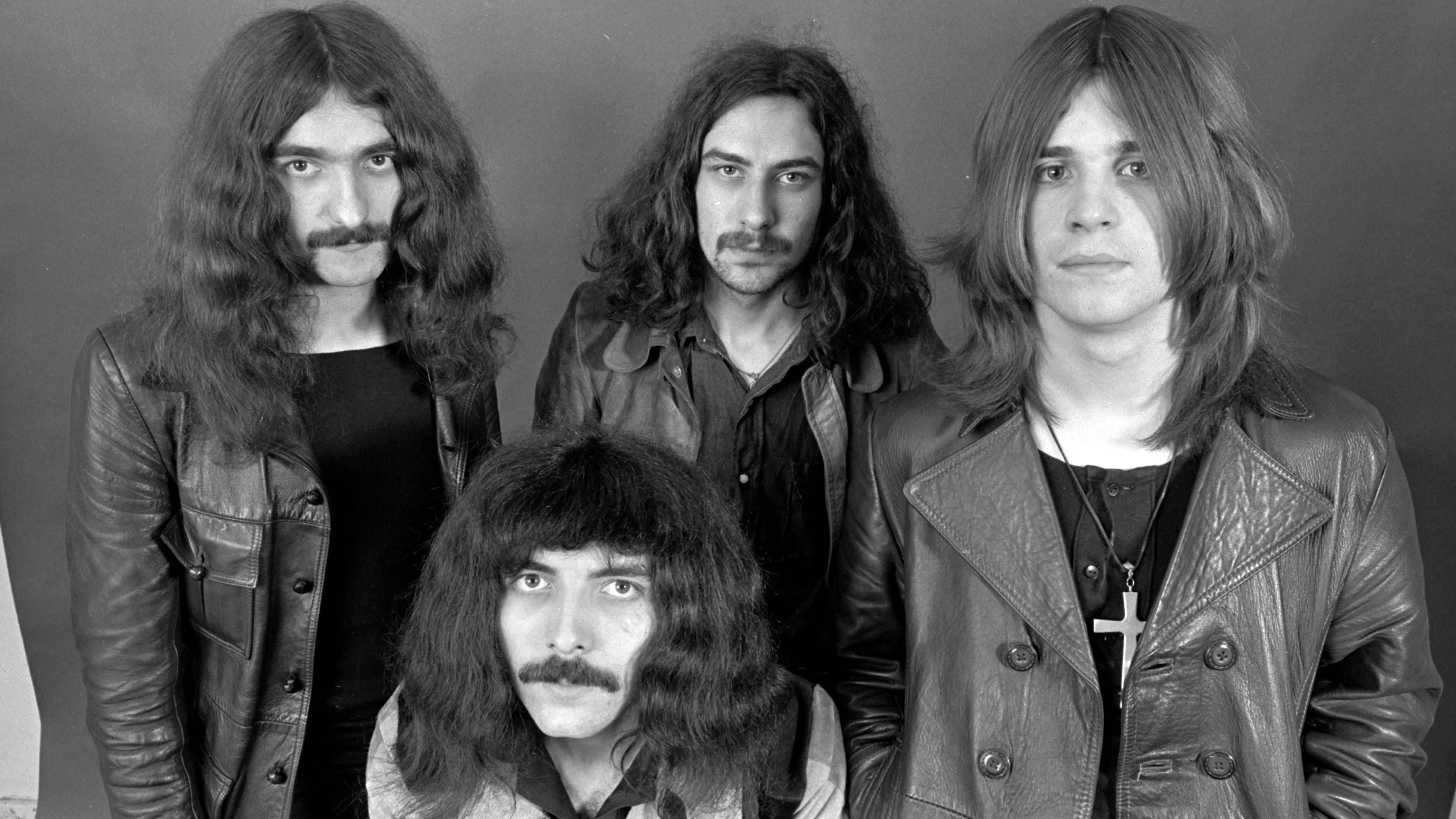Musical heritage 'should be part of city's tourism'
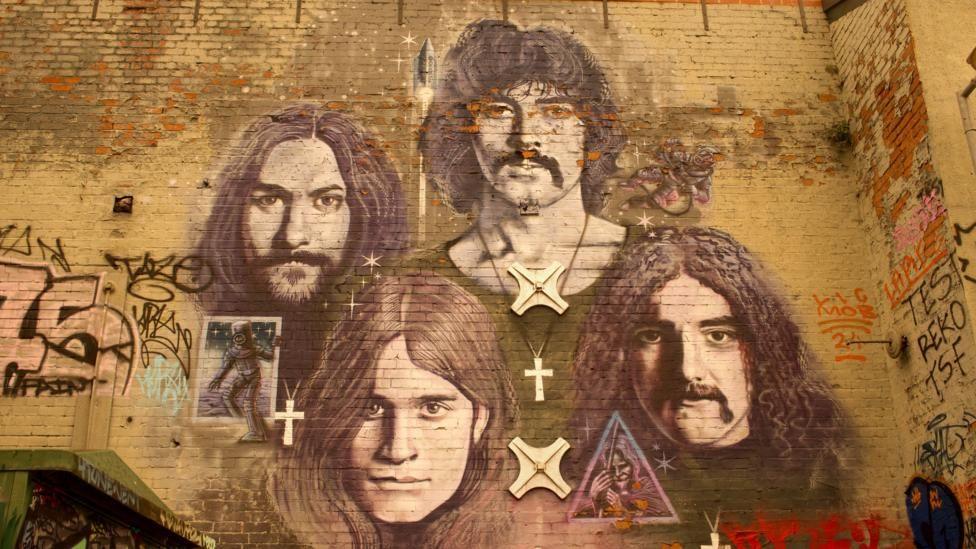
Birmingham is an "absolute hub" for music, known for its historical roots to heavy metal
- Published
Birmingham is the home of Black Sabbath and widely regarded as the birthplace of heavy metal - but many have asked whether it gets the recognition it deserves for its rich musical heritage.
As well as Sabbath, influential bands like Judas Priest and Electric Light Orchestra (ELO) further solidify the city's place in rock history.
Since thousands of fans visited for Sabbath's final performance, calls to make the location of the band's first ever gig part of a heritage site, have become louder.
So should the city's historic roots in heavy metal become part of its official tourism?
Birmingham has been championed in recent months in the lead up to Black Sabbath's star-studded final performance on 5 July, which saw 40,000 fans descend upon Villa Park stadium.
While in the city, fans visited well known rock shrines like the Crown Pub, on Station Street, where images of the band members have been placed on the building's exterior.
Sabbath, which used to be known as Earth, played their first gig at Henry's Blueshouse, which was located upstairs in the pub.
Culture journalist Kirsty Bosley told the BBC the city has enough rock memorabilia ready to fill a dedicated museum.
"Jim Simpson is still in Birmingham, he's still running Henry's Blueshouse and he's still got in his office in Broad Street with boxes full of memorabilia and leaflets and coverage and newspapers that is ready to go," she said.
The pub was built in 1881 and shut in 2014 after it was bought by a Japanese development company. Plans to restore the pub fell apart last year after Birmingham City Council retracted its offer of a loan.
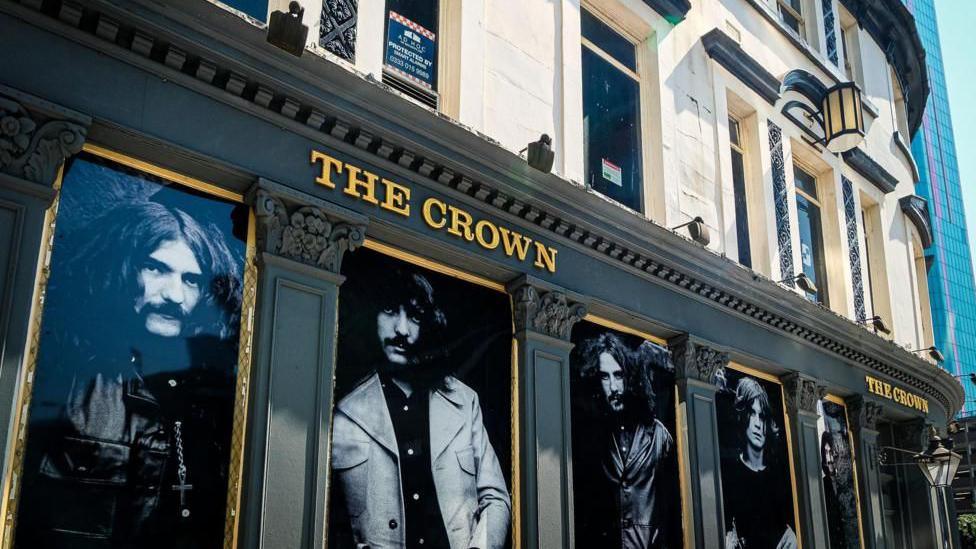
Plans to restore The Crown pub, where Black Sabbath played their first gig, fell through last year
The council told the BBC it recognised the cultural significance of Station Street to the city.
Councillor Saima Suleman said: "We are committed to working collaboratively with partners, to ensure that any future development reflects Birmingham's identity and supports inclusive growth.
"The council also wishes to reassure residents that we take seriously our role in protecting the city's heritage, and any proposals will be carefully considered through the proper planning process to balance progress with preservation."
Speaking to BBC Radio WM, West Midlands Mayor Richard Parker he would like to see Station Street saved, but there was a need "to ensure that any solution is financially robust and sustainable".
Ms Boseley added: "It's difficult for me to accept that [anyone] thinks The Crown couldn't just wash its face, even just being a boozer near the busiest train station outside of London."
Save Station Street campaigners said The Crown should be the site of "(un)holy pilgrimage".
The group said: "The city has been gift-wrapped the most historic grassroots arts street in the UK.
"Yet most of it is closed down. Boarded up. Under threat. The Crown especially should be the site of (un)holy pilgrimage for every Sabbath fan, Metal Head, Ska Revivalist, Punk and Folkie globally - showcasing the best Brum music, beer, food and creativity."
'World paying attention'
Tom Morello, of Rage Against The Machine, was the musical director for the Sabbath event.
He told the BBC that the whole world was paying attention to the moment the band's original line-up played together for the first time in 20 years - "not just the heavy metal world".
He said: "Black Sabbath is the band that invented heavy metal music, and it is a band that is so meaningful to so many of us, and the DNA of Black Sabbath is everywhere.
"Those are things that originated in your city. Those are things that originated with Black Sabbath and Ozzy Osbourne."
Speaking about the black throne Ozzy performed from during the event, he added: "I'm not sure what happened to it, but hopefully there'll be some Birmingham museum of Sabbath and Ozzy Osbourne, where it should be in the front and the first thing you see when you walk in."
'Absolute hub' of music
UB40's Robin Campbell told BBC Radio WM that he felt Birmingham had not got the recognition it deserved for the music it has produced over the years.
He said: "It's been an absolute hub of music, of all types, of all genres - from heavy metal and rock and reggae, but also pop groups - so much music has come out of Birmingham."
Black Sabbath's connection to Birmingham has been compared to Liverpool's with The Beatles.
Chris Cannon, who runs guided tours in Liverpool, said the city's musical heritage supported more than 2,300 jobs.
Referencing research by the University of Liverpool in 2016, he said The Beatles' legacy was worth £82m to the city each year.
"We have got quite a large musical heritage, the same as Birmingham," he said.
Asked if Birmingham could support a similar music heritage economy, he said that Liverpool had largely achieved it without council backing and that most of the city's Beatles tourism was privately owned.
He added: "It's taken nearly 30, 40 years for Beatles tourism to take off. But when it first opened nobody was interested in visiting it, but it's really taken off."
Get in touch
Tell us which stories we should cover in Birmingham and the Black Country
Follow BBC Birmingham on BBC Sounds, Facebook, external, X, external and Instagram, external.
Related topics
- Published17 July
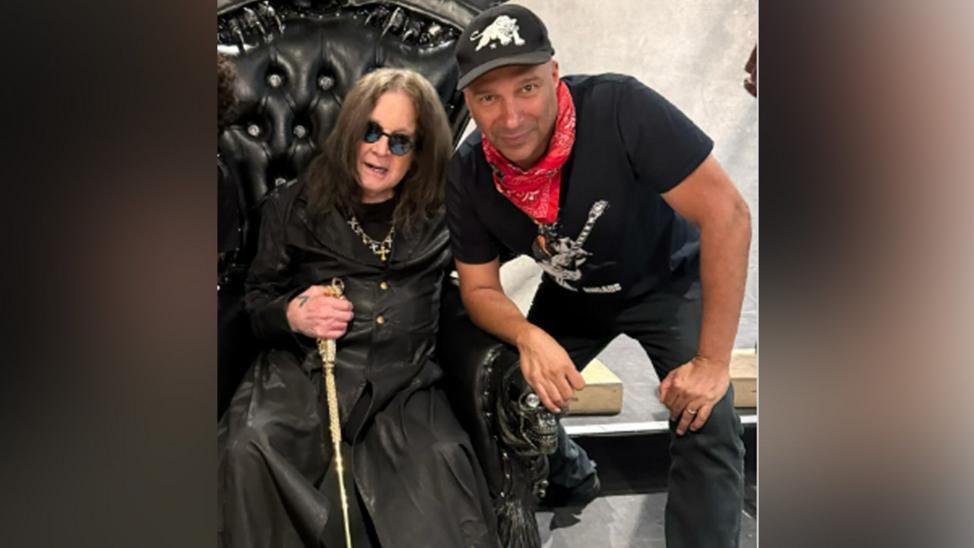
- Published8 July
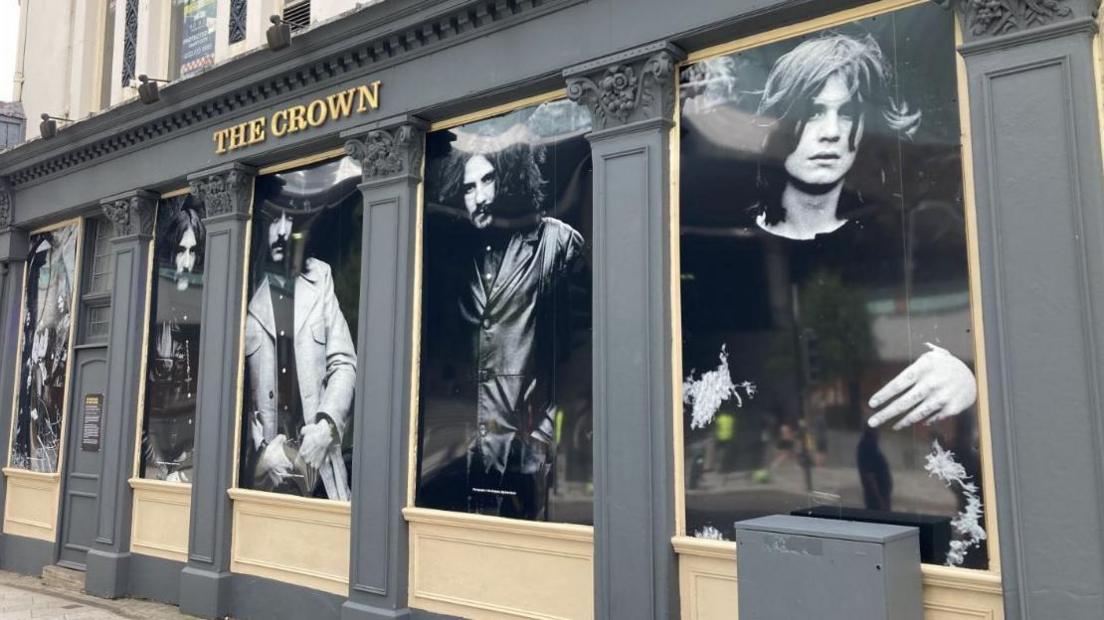
- Published2 July
